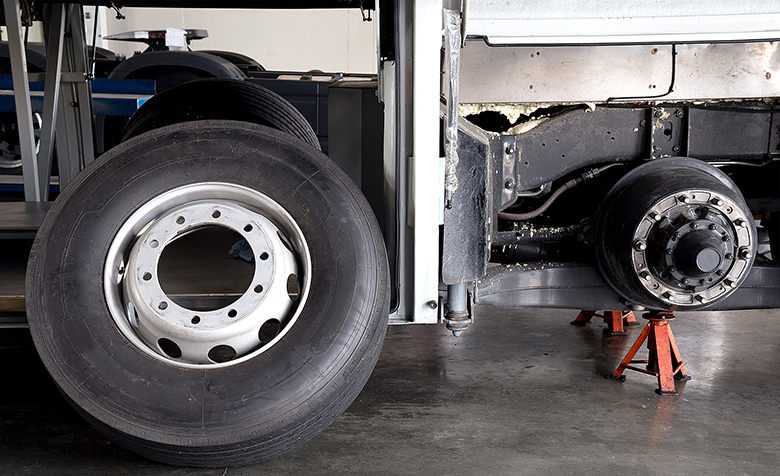
One of the most difficult decisions operators must make is if a collision bus should be repaired or replaced. It is never an easy process, and many variables must be considered. The three main driving variables are the extent of the damage, cost of repairs and the age of the bus. The bus must be thoroughly inspected to accurately assess the extent of the damage. Operators should contact a qualified collision repair shop to perform the collision bus inspection. This way you are certain you have not missed any damaged areas and truly understand the extent of the damage. The shop will also provide a detailed labor and parts estimate for the cost of repairs. Once you have those two pieces of information, it is time to evaluate the age and condition of the bus. Naturally, older buses with high mileage have higher depreciation and are more likely to have more wear/tear issues. It’s important to compare the cost of repair to the market value of the bus. A final factor to consider are the long-term goals of the particular bus. Are you keeping it for a few years or retiring the bus soon? This may also require operators to take a closer look at their fleet overall.
The collection of data and analytics on bus collision repair has really improved in the last several years. We now have more bus collision repair data than ever before. This is due to technological advancements like repair software and programs that allow shops to track processes better. This information is crucial because repair shops can identify trends, improve efficiency, and enhance safety based on all the data reports. Repair shops can also make better recommendations to customers such as repair solutions, parts/materials, and upgrades.
In the event of a collision, the best thing to do is to perform a cost analysis. The analysis should include labor/parts, and facility maintenance and equipment costs. Each collision repair is unique to each operator and current situation. Each operator has different resources and capabilities when it comes to collision repairs. Minor repairs can be easily handled by many agencies, but major repairs require specialized technicians and equipment. For example, many times when structural damage is found it is indicative of a more extensive repair. A specialized collision repair shop can save you time and money with larger collision repairs. It will also provide you with greater assurance of quality and safety.
Outsourcing collision repair can definitely save operators money. If an operator feels like they do not have the in-house expertise or equipment to handle the repair, then they should outsource the repair. It is not worth “attempting” to do a repair, if you are not 100 percent sure that you can do it. It will only result in a loss of money, time, and effort. Also, many operators are at a full workload and capacity due to their large bus fleets. Outsourcing can alleviate the workload and reduce downtime.
It is important operators are well informed of their insurance coverage when it comes down to dealing with major collision repairs. As with any other insurance there are different types of coverage and policy limits. Operators will want to keep close track of their collision claims and see how it may affect their future insurance premiums. Insurance companies will do their own inspection and estimate of bus collisions. But it is important you obtain multiple repair estimates from collision shops. Many times, the insurance company estimate will differ from the collision shop estimate. Both parties will have to negotiate the costs and come to an agreement.
Structural damage is the most common hidden factor that we see that drives up collision repair costs. When structural damage is found, you need to carefully assess the area to see the complete extent of the damage. The structural damage could indicate that other major areas were impacted, such as the frame, engine, or transmission. A lot of our customers will request a partial disassembly before beginning repairs to verify the structural integrity of the bus. The partial disassembly allows us to inspect further and helps us recommend how to move forward on the repair.
Iriz Guerrero is sales and marketing manager for CoachCrafters. CoachCrafters is happy to help and serve the public transportation industry. Please make sure to give us a call at 833-559-7679 with any of your specific maintenance needs, or visit www.coachcrafters.com for more information.
